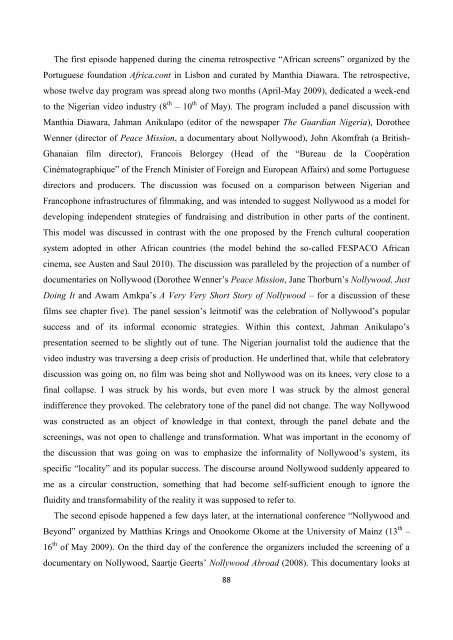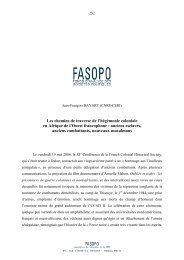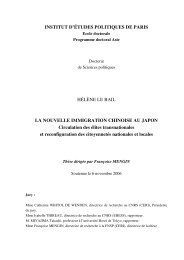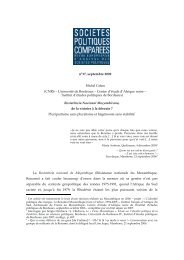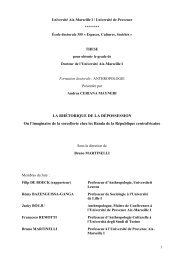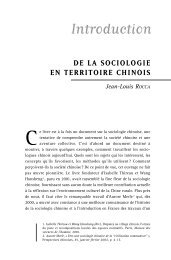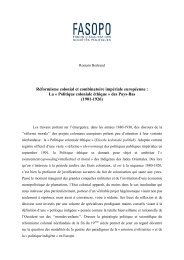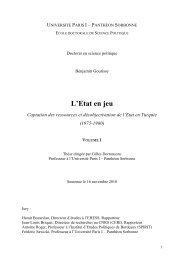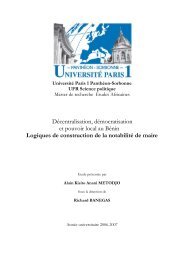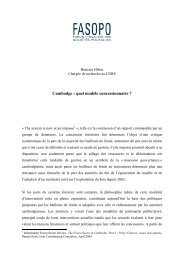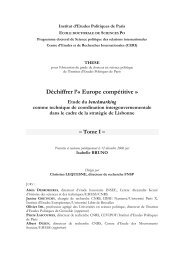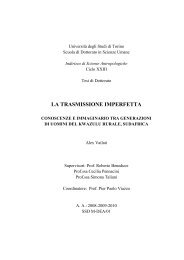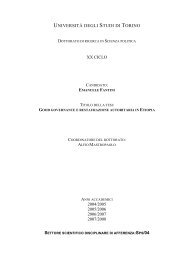You also want an ePaper? Increase the reach of your titles
YUMPU automatically turns print PDFs into web optimized ePapers that Google loves.
The first episode happened during the cinema retrospective “African screens” organized by thePortuguese foundation Africa.cont in Lisbon and curated by Manthia Diawara. The retrospective,whose twelve day program was spread along two months (April-May 2009), dedicated a week-endto the Nigerian video industry (8 th – 10 th of May). The program included a panel discussion withManthia Diawara, Jahman Anikulapo (editor of the newspaper The Guardian Nigeria), DorotheeWenner (director of Peace Mission, a documentary about Nollywood), John Akomfrah (a British-Ghanaian film director), Francois Belorgey (Head of the “Bureau de la CoopérationCinématographique” of the French Minister of Foreign and European Affairs) and some Portuguesedirectors and producers. The discussion was focused on a comparison between Nigerian andFrancophone infrastructures of filmmaking, and was intended to suggest Nollywood as a model fordeveloping independent strategies of fundraising and distribution in other parts of the continent.This model was discussed in contrast with the one proposed by the French cultural cooperationsystem adopted in other African countries (the model behind the so-called FESPACO Africancinema, see Austen and Saul 2010). The discussion was paralleled by the projection of a number ofdocumentaries on Nollywood (Dorothee Wenner’s Peace Mission, Jane Thorburn’s Nollywood, JustDoing It and Awam Amkpa’s A Very Very Short Story of Nollywood – for a discussion of thesefilms see chapter five). The panel session’s leitmotif was the celebration of Nollywood’s popularsuccess and of its informal economic strategies. Within this context, Jahman Anikulapo’spresentation seemed to be slightly out of tune. The Nigerian journalist told the audience that thevideo industry was traversing a deep crisis of production. He underlined that, while that celebratorydiscussion was going on, no film was being shot and Nollywood was on its knees, very close to afinal collapse. I was struck by his words, but even more I was struck by the almost generalindifference they provoked. The celebratory tone of the panel did not change. The way Nollywoodwas constructed as an object of knowledge in that context, through the panel debate and thescreenings, was not open to challenge and transformation. What was important in the economy ofthe discussion that was going on was to emphasize the informality of Nollywood’s system, itsspecific “locality” and its popular success. The discourse around Nollywood suddenly appeared tome as a circular construction, something that had become self-sufficient enough to ignore thefluidity and transformability of the reality it was supposed to refer to.The second episode happened a few days later, at the international conference “Nollywood andBeyond” organized by Matthias Krings and Onookome Okome at the University of Mainz (13 th –16 th of May 2009). On the third day of the conference the organizers included the screening of adocumentary on Nollywood, Saartje Geerts’ Nollywood Abroad (2008). This documentary looks at88


